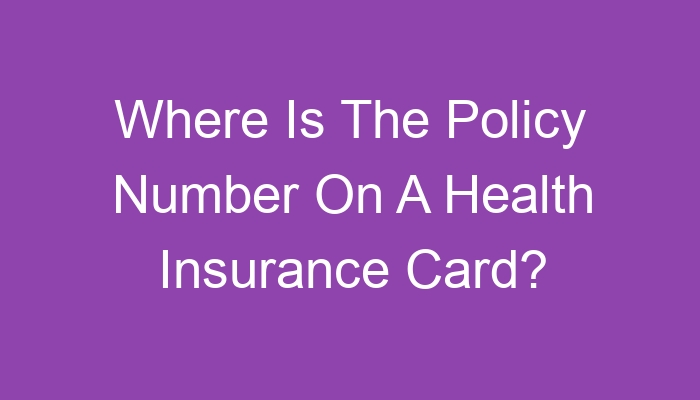Policy numbers on insurance cards provide an identifier that corresponds directly with your specific coverage. They’re essential when filing claims, accessing policy details or communicating with insurers about coverage matters. This code, commonly referred to as your Member ID number, should always be kept handy when purchasing insurance coverage. Prepaid Health Cards Prepaid health cards […]
Many people rely on dental coverage provided by their employers or as part of a medical insurance plan, while those needing additional coverage may find more cost-effective plans through licensed marketplaces like eHealth. Private dental plans often provide multiple options, from Preferred Provider Organizations (PPO) to Dental Health Maintenance Organizations (DHMO). Finding one that suits […]
Medical expenses are among the greatest retirement costs. But they may be tax deductible if you itemize deductions rather than taking the standard deduction, according to Claire Hunsaker, founder of AskFlossie a financial community for women. Long-term care insurance premiums are an expense. But are they fully tax deductible? Tax Deductions Retirees can take advantage […]
Molex employees and their families can now take advantage of enrolling in the credit union for free today, reaping many of its many advantages as members. Molex shall provide Fleischhacker and his eligible dependents dental coverage through his Retirement Date in accordance with his active employee plan. Life Insurance Molex provides life insurance as part […]
Introduction Many industries are experiencing rapid and significant changes, so change is now the only certainty. The Reinsurance industry is not an exception. This is made worse by the current economic climate. Broking houses and Reinsurance companies continue to use worldwide strategies to increase customer service and productivity. Due to stricter compliance, tighter controls have been implemented. Over […]
In April, the media commented on insurers’ massive price increases for their Mortgage Payment Protection Insurance. (Guardian 14/04/2009). This trend continues unabated. They reported that Hitachi and Cardif-Pinnacle had increased their rates by 40%. They also joined Norwich Union, who in January 2009 imposed a 30% rate hike. With the Legal and General joining the bandwagon for rate […]
Life insurance is purchased to pay a benefit. A dollar amount to be paid to your beneficiary upon your death. You can also save money with it. There are several types of life insurance policies. This article will provide a summary of each type as well as some benefits that it can offer to your particular situation. Insurance companies […]
Because our financial goals and circumstances are different, there is no one “Rule of Thumb” that will tell you what insurance or how much. It is important to engage a Financial Consultant/Insurance Representative to ensure that they are able to provide their services and advice and prioritize your financial needs based on your present financial situation. […]
Denied – Underpayment – Harassment This is a very common story. The insurance company declines to pay the claim, or offers less than 40% reimbursement for the house that has been set on fire. The policyholder informs the company about the flat-screen TV she purchased in her family room, but she doesn’t have her receipt because it […]
Final Expense Insurance can help make the process less stressful. Final Expense Insurance can be purchased to ensure that funeral costs are paid when you die. Surprised to find out that the current average funeral cost is $8,000, but it could rise in the future. Are you willing to pay the funeral costs yourself or let your family […]










